Picture Perfect Polar Photography
December 15, 2018 - 6 minutes read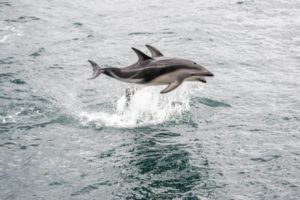 An interview and advice from Oceanwide Expeditions polar photographer and guide Esther Kokmeijer on how to take better pictures during trips to the Antarctic and Arctic.
An interview and advice from Oceanwide Expeditions polar photographer and guide Esther Kokmeijer on how to take better pictures during trips to the Antarctic and Arctic.
The art of polar photography
It isn’t easy to take a bad picture in the polar regions, but it’s far from impossible. (Snapping a photo of the inside of your jacket is a good start.)
Even so, the beauty of the Antarctic and Arctic seems to ask a certain photographic respect: When you take a dim, crooked, thoughtlessly rushed picture of a dazzling polar shoreline, somewhere there’s an angel bursting into tears.
After all, you were better off just enjoying the moment with your own two eyes.
By contrast, a carefully captured polar photo is a beautiful sight. It’s almost enough to transport you into that sublime, surreal world. To find out how this is done, we sat down with someone who does it for a living.
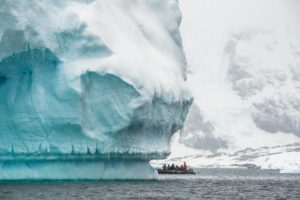 Esther Kokmeijer has been a professional photographer for years, leading numerous polar photography workshops that teach Oceanwide Expeditions passengers how to take pictures they’re proud to bring back home. During our talk, she gave us a few tips you won’t want to miss.
Esther Kokmeijer has been a professional photographer for years, leading numerous polar photography workshops that teach Oceanwide Expeditions passengers how to take pictures they’re proud to bring back home. During our talk, she gave us a few tips you won’t want to miss.
Unless the inside of your jacket is really that interesting.
What’s one photography tip you give all polar passengers?
Tell stories with your pictures. You don’t need the best camera or biggest lens to do this. It’s all about your own observations of the Antarctic or Arctic environment, your own presence within that world.
Is that easy for people to grasp?
It takes practice, but they’re in the perfect place for it. When I’m leading a workshop on an expedition vessel in Antarctica, for example, I like to inspire passengers to absorb the whole beauty of Antarctica. It’s a wide-angle paradise, but there are also so many tiny details that deserve attention.
Is that why you got into bird photography — to capture the little details?
Before coming on board expedition cruises, I wasn’t at all a bird photographer. In fact, the first bird photos I made were out of duty. But now I admire them fully. I especially love capturing fast-flying birds, like Arctic terns. They move so gracefully. By freezing them with a fast shutter speed, the most elegant postures become visible.
Are you from a very natural environment?
I was born in the northern Netherlands, in a region known as Friesland. Beautiful coastal areas were only a couple of minutes of biking from where I lived, so I could watch the sun setting into the perfect mirror of the sea, reflecting all those pink clouds. Now my favorite landscape is an ensemble of water, clouds and icebergs.
Are icebergs central to your own polar photography?
It’s the icebergs that really make me feel in love with the polar regions. Although it’s always amazing to see wildlife in their natural habitats, I can gaze at icebergs for hours. I like to capture their numerous appearances in my pictures. They can look like crumpled paper, translucent golf balls, or giant pieces of meringue pie in so many shades of blue.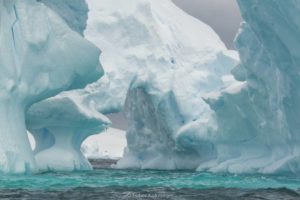
Do you look for great pictures, or do they just find you?
With my camera, I’m always an active observer. I feel my surroundings and am more open and aware of all that’s happening around me. I love that feeling of hunting for the right moment…
Do we sense another photography tip coming?
Yes: Try to capture action, emotion, and fun.
Maybe there’s a penguin stealing a stone from a nest or teasing a seal by jumping on its belly or just staring back at you, curious.
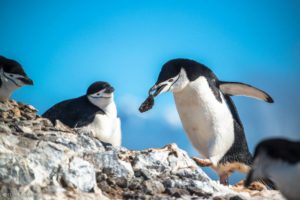 It’s all about waiting for the right moment. Collect your polar story, show references, make overviews. And don’t forget to capture something that shows the scale once in a while.
It’s all about waiting for the right moment. Collect your polar story, show references, make overviews. And don’t forget to capture something that shows the scale once in a while.
Is close-contact wildlife photography of penguins, for example, possible on cruises to Antarctica?
With most of our landings, we can get fairly close to the penguins.
Per IAATO regulations, this means no closer than about five meters (16 feet), but we’re right there on the snow with them. You don’t need a very high-powered lens.
To watch penguins at eye level is extremely touching and intimate. I’m lying on the snow much of the time. I take photos using their height as a reference. Even on wide shots, I try to capture the penguins as tall as possible to prevent them from becoming black dots on the snow.
Can you leave us with one last piece of photography wisdom?
Overall, it’s about your own perception. How do you experience the polar regions? What touches you about them? Be authentic, capture the moments in this awe-inspiring place in the way you want to remember them.
And remove your camera from your jacket before taking any pictures.
Yes, it generally works better that way.
Tags: How to take a great photo, Oceanwide Expeditions, Polar trips. Polar Photography
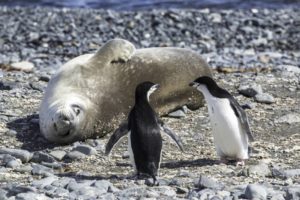
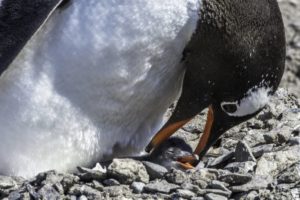
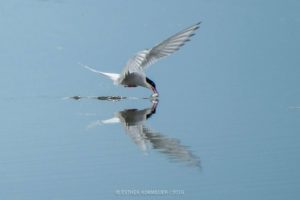
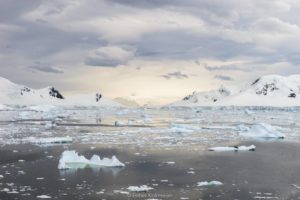
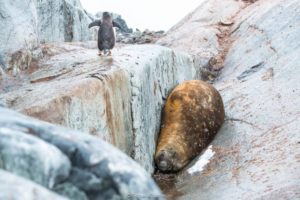
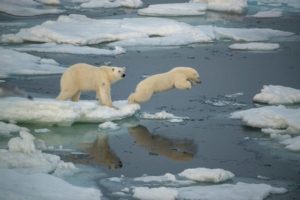
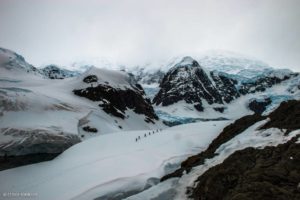
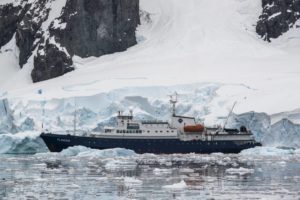
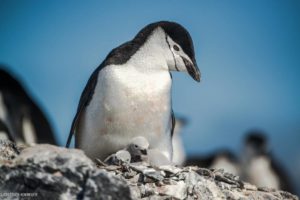
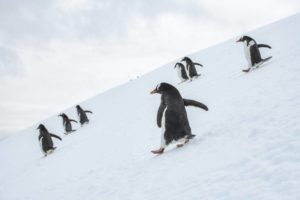
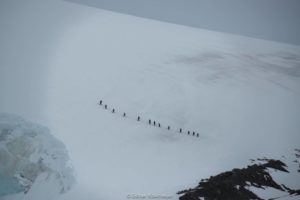
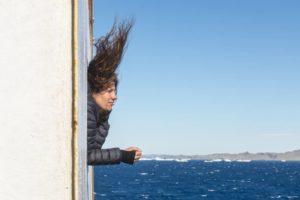
0 Comments